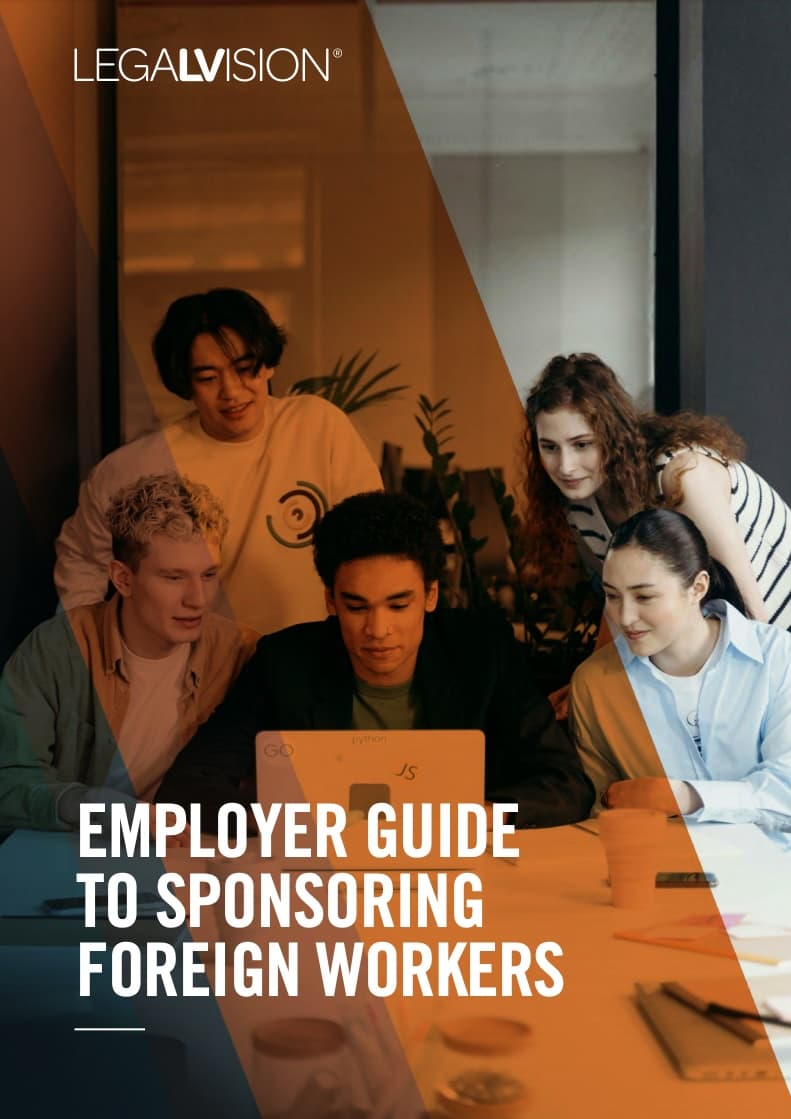An Australian Partner Visa is a combined application of the provisional and permanent visa. For onshore applications, the appropriate subclass is 820/801, and for offshore applications, it is 309/100. Partner visas will be granted based on the satisfaction that you are in a genuine and committed relationship, to the exclusion of all others, with an Australian citizen, an Australian permanent resident or an eligible New Zealand citizen. If your relationship ends or breaks down whilst holding a temporary partner visa, there will be implications to your visa status. This article will explore your obligations and options if your relationship with your sponsoring partner has ended.
Permanent Partner Visa
If you have been granted a permanent partner visa (subclass 801 or 100), and your relationship ends, your permanent residence in Australia will continue. Therefore, you are not obligated to notify the Department of Home Affairs (DOHA), and you will remain an Australian permanent resident.
Temporary Partner Visa
If you have been granted a temporary partner visa (subclass 820 or 309) and your relationship ends, your visa will be at risk of cancellation. In this instance, you have certain obligations to comply with and potential options moving forward.
Notify the Department
As part of your visa conditions, you must notify the Department of Home Affairs of your relationship breakdown as soon as you can via one of the following methods:
- via email with a Form 1022 “Notification in changes of circumstances”;
- via the online contact form; or
- via your online ImmiAccount “Notification of relationship cessation”.
DOHA may contact your sponsoring partner and request a withdrawal of sponsorship formally. Conversely, your sponsor may notify DOHA of your relationship breakdown. However, they do not have the power to cancel your visa automatically. DOHA has sole authority over your visa status.
Upon notification of your relationship breakdown, DOHA will typically send you a letter allowing you an opportunity to explain or comment on the situation within 28 days.
Options to Remain in Australia
If you are in this situation, you may still be eligible for a permanent visa despite the breakdown of your relationship if:
- you have experienced family violence from your sponsor during your relationship (and can substantially evidence this);
- you have parental responsibility of an Australian citizen child from the relationship; or
- your sponsor has died.
Family Violence
The Australian Government has a zero-tolerance approach to domestic and family violence against anyone. The family violence provisions were introduced to ensure that partner visa holders do not feel compelled to remain in violent relationships to maintain their visa status in Australia.
Domestic and family violence is any conduct that makes you fear for your own or your family’s well-being. It may be directed at you, your family, pets or property. This includes:
- physical abuse;
- sexual abuse;
- verbal abuse;
- emotional abuse;
- social abuse;
- financial abuse; or
- violence.
For you to be eligible for permanent residence under these provisions, you must demonstrate that your sponsor perpetrated family violence during your relationship with them. This entails the following steps.
1. Notify the Department of Your Cessation of the Relationship
You will be asked when the relationship ended and if you experienced family violence in your relationship. Note that for safety purposes, your visa and sponsorship applications will be removed from your ImmiAccount (and transferred) once you declare this.
2. DOHA Will Assess Whether the Relationship Was Genuine Prior to Cessation.
The Department will conduct a relationship assessment to establish that you were in a genuine and ongoing relationship with your sponsor before the relationship ceased. You may be requested to provide evidence of this with documents relating to financial, household, social and emotional aspects of your relationship. For example, this may include:
- statutory declarations;
- bills;
- joint mail;
- joint travel;
- wills; and
- communication.
3. Assessment of Family Violence
The Department will conduct an assessment of the alleged family violence perpetrated by your sponsor during the relationship. You will need to provide evidence in accordance with their request. This may be either judicial or non-judicial evidence.
Judicial Evidence
This is a document from a court of law including:
- final court injunction under the Family Law Act 1975 against your partner;
- final court order against your partner made under a State or Territory law;
- final record that the court has convicted your partner of a family violence offence against you or your dependant(s);
- final record that the court has recorded a finding of guilt against your partner of family violence offences against you or your dependant(s); or
- an application for court order.
Non-Judicial Evidence
Generally, this will be a minimum of two pieces of evidence from different categories, including:
- medical evidence, such as hospital reports;
- police evidence, such as a witness statement;
- child welfare officer professional letter;
- family violence support service provider’s professional letter;
- social worker professional letter;
- psychologist professional letter;
- family consultant or relationship counsellor’s professional letter; or
- an education professional’s letter.
DOHA will proceed with its assessments and may ask you to provide further information. You must be aware of and comply with any requests. If the Department is not satisfied that family violence has occurred, it may refer your matter to an independent expert. The independent expert will make a determination after inviting you for an interview. The Department will accept the decision of the independent expert. If they find that family violence has not occurred, the Department will likely refuse your permanent visa application (which you may be able to appeal).
Suppose the Department is satisfied that your relationship with your partner was genuine before the breakdown and you were subject to family violence. In that case, you will be granted a permanent visa, provided that you meet all other visa requirements.

Sponsoring overseas workers as an Australian business is complicated. Let us simplify it for you with this free employer guide.
Child From the Relationship
Australia prioritises acting in the best interests of the child. Therefore, some provisions may allow you to access a permanent visa if your relationship breaks down and you have parental responsibility for at least one Australian citizen child of the relationship under 18 years old. You will need to notify the Department of the relationship breakdown with this information. You will also need to establish that you have parental rights in respect of the child. Examples of evidence you may provide in this situation include:
- your child’s birth certificate, naming both parties as parents of the child; or
- a court order concerning parental rights or custody arrangements.
Your Sponsor Dies
You may be eligible for a permanent visa if your sponsoring partner dies, and you can provide evidence that the relationship would have continued had your sponsor not died. You will need to notify the Department of the cessation of your relationship as a result of the death as soon as possible.
To be eligible for the subclass 801 visa, you will need to show that:
- you hold a temporary Partner visa (subclass 820);
- you can prove your relationship would have continued if your partner was still alive; and
- you have close business, cultural or personal ties in Australia, such as a residence, employment, family and friends and community involvement.
To be eligible for the subclass 100 visa, you will need to show either of the following:
Option 1
To be eligible for the first option, you must meet the following criteria:
- first enter Australia as the holder of a provisional Partner visa (subclass 309) and continue to hold that visa;
- your partner or spouse who sponsored your application dies after you first entered Australia as the holder of a provisional Partner visa (subclass 309); and
- you can prove your relationship would have continued if your partner was still alive.
Option 2
To be eligible for the second option, you must meet the following criteria:
- be granted a provisional Partner visa (subclass 309) while in Australia, under a COVID-19 visa concession;
- your partner or spouse who sponsored your application is now deceased; and
- you can prove your relationship would have continued if your partner was still alive.
Applying for an Alternate Visa
If none of the above circumstances apply to you, you may consider applying for an alternate visa if you wish to remain in Australia. The visa pathways that are available to you will depend on your circumstances. We recommend that you seek legal advice to determine the best pathway for your situation. If there are no viable options for you, you will need to make arrangements to depart Australia.
Key Takeaways
You must inform the Department of Home Affairs you are on a temporary partner visa and your relationship with your sponsoring partner breaks down. Nevertheless, you may still be eligible for a permanent visa despite the relationship ending. The Department will make special concessions if you have experienced family violence, have parental responsibility of an Australian citizen child from the relationship, or if your partner has died (provided that you can evidence these circumstances).
If you need help with your visa options following the breakdown of your relationship, our experienced immigration lawyers can assist as part of our LegalVision membership. For a low monthly fee, you will have unlimited access to lawyers to answer your questions and draft and review your documents. Call us today on 1300 544 755 or visit our membership page.
We appreciate your feedback – your submission has been successfully received.












